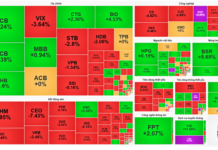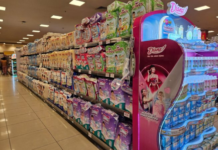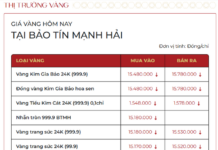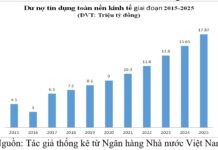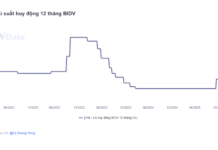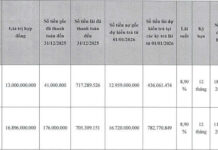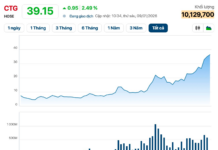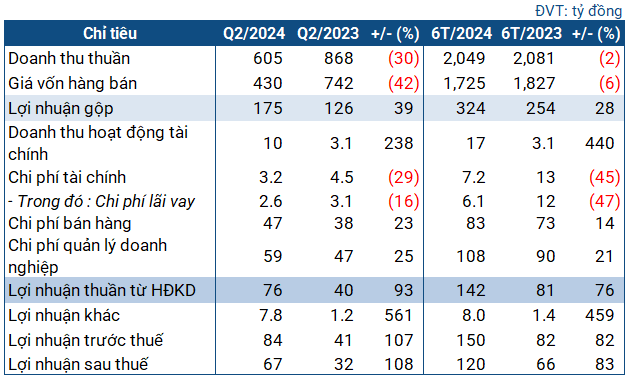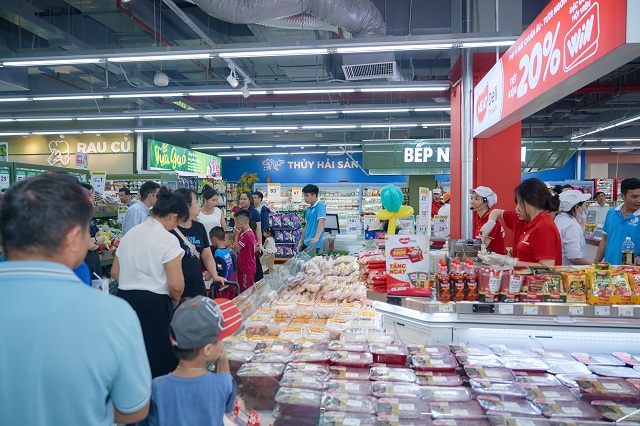
Digital Transformation: An Inevitable Trend for Vietnam’s Retail Sector
The global retail industry is undergoing a significant transformation as artificial intelligence (AI) and big data become core tools for optimizing operations. According to a McKinsey survey, 65% of global organizations have integrated AI into their operations, nearly double the figure from the previous year. This integration enables the analysis of large datasets to forecast market trends, personalize customer experiences, and mitigate risks in the supply chain.
In Vietnam, modern trade is rapidly expanding, with fierce competition among domestic and international enterprises. Retailers view technology as the key to gaining a competitive edge, from inventory management and digital payments to e-commerce and personalized customer experiences. Vietnam’s AI market is projected to reach $1 billion by 2025, growing at an annual rate of 30%. McKinsey estimates that AI could contribute between $2.6 and $4.4 trillion annually to the global economy, primarily in areas like customer operations, marketing, and sales. In this context, success is no longer solely determined by the number of retail outlets but by technological capabilities to control costs, understand customer needs, and retain clients. Simultaneously, the government’s National Digital Transformation Program by 2030 provides a favorable legal framework for businesses to adopt AI and data-driven solutions. Digital transformation is now a necessity for the retail sector’s survival, not just an option.
Within this landscape, many local businesses are accelerating their digital transformation efforts. Leading consumer and retail conglomerates like Masan (Hose: MSN) are at the forefront, integrating technology and data into their core strategies.
AI-First Digital Backbone: Masan’s Core Strategy
Under its new development strategy, Masan has built a digital transformation platform centered around AI, serving as the backbone for its entire consumer and retail ecosystem. The platform focuses on leveraging real-time data to automate processes such as demand forecasting, ordering, supply chain management, and store operations. This “AI-driven” approach not only optimizes costs and reduces waste but also creates new competitive advantages by enabling flexible responses to changing consumer behavior.
A notable example is WiNARE, an AI-powered automated ordering system implemented across Masan’s retail chain, WinCommerce. By the end of 2025, WiNARE is expected to reduce employee workload by at least 15% and cut spoilage in the meat category by nearly 2% of revenue, saving tens of billions of VND monthly. Additionally, product availability on shelves has increased from 80% to nearly 90%. The system is expanding to other categories, including seafood, fresh produce, and processed foods, with plans to cover 70% of the product portfolio by the end of 2025.
The implementation of WiNARE demonstrates that Masan’s digital transformation strategy is not just theoretical but has delivered tangible results: reducing manual workloads, optimizing fresh food management, and enhancing the shopping experience.
Data and AI: Long-Term Competitive Advantage
In the data-driven era, competitive advantage stems not only from the scale of retail outlets or product portfolios but from the ability to collect, analyze, and apply data to optimize operations and enhance customer experiences. With the rapid advancement of AI and real-time data, retailers have the opportunity to set new standards for efficiency, transparency, and market adaptability.
Investing in a unified technology platform has not only improved Masan’s operational efficiency but also created long-term competitive advantages. By connecting its business segments—retail chains (WinMart/WinMart+/WiN under WinCommerce), fast-moving consumer goods (Masan Consumer), food processing (Masan MEATLife), and financial services—on a single data platform, the conglomerate can synchronize its supply chain, reduce costs, and respond more swiftly to market demand shifts.
Experts note that AI applications in Vietnam’s modern retail sector are still in their early stages. This presents pioneering companies with the opportunity to set new operational standards and build investor confidence.
Long-term, Masan’s technology strategy aligns with its plan to expand WinCommerce to 8,000 stores by 2030. As the scale doubles, competitive advantage will no longer come from the number of outlets but from streamlined, efficient operations and seamless customer experiences. Digital transformation in retail is no longer optional but essential. With its AI-focused automation and digitization strategy, along with practical applications, Masan is recognized as a leading domestic enterprise leveraging AI to create new competitive advantages.
According to BVSC’s September 2025 update, Masan is positively positioned, with projected 2025 revenue of 85,042 billion VND (+2.2% year-on-year) and post-tax profit of 3,501 billion VND (+75.1% year-on-year). BVSC recommends an OUTPERFORM rating for MSN stock, with a target price of 106,000 VND/share. Key growth drivers include WinCommerce (WinMart/WinMart+/WiN retail chain), Masan MEATLife (meat processing), Masan High-Tech Materials (minerals, UPCoM: MSR), and Phúc Long, while Masan Consumer (FMCG, UPCoM: MCH) is expected to recover strongly from 2026.
– 09:11 30/09/2025
MobiFone and SOVICO Partner to Develop Multi-Utility Telecom Technology Ecosystem
Yesterday in Hanoi, MobiFone Telecommunications Corporation and SOVICO Group signed a comprehensive Memorandum of Understanding (MoU), marking the beginning of a transformative journey to build a multi-utility technology and service ecosystem. This partnership aims to drive national development, empower businesses, and enhance services for the people.
Vietbank Accelerates Sustainable Development Strategy
Vietnam Thuong Tin Commercial Joint Stock Bank (Vietbank) has announced its plan to acquire Lim II Tower (62A Cach Mang Thang Tam, District 3, now Xuan Hoa Ward, Ho Chi Minh City), the building it has leased as its Ho Chi Minh City Branch headquarters for many years. This strategic move, subject to shareholder approval via written consent, underscores Vietbank’s financial strength, enhances its competitive edge, and aligns with its goal of becoming one of Vietnam’s top 15 commercial joint stock banks, as outlined in its strategic vision.
Unlocking Vietnam’s Aspiration for Strength and Prosperity: The Golden Key Revealed by the General Secretary
Secretary-General Tô Lâm emphasized that science, technology, innovation, and digital transformation are not merely options but vital pathways to achieving rapid and sustainable development. These elements serve as the golden key to realizing Vietnam’s aspiration of becoming a powerful and prosperous nation by 2045.
Sacombank Secures Spot Among Vietnam’s Top 50 Most Efficient Companies in 2025
Sacombank has once again secured its position in the Top 50 Most Effective Business Companies in Vietnam (TOP50) for 2025, ranking 14th—a remarkable 11-place leap from 2024. This achievement underscores Sacombank’s exceptional management efficiency and sustainable growth capabilities, even amidst a highly volatile market landscape.
SHB Officially Increases Chartered Capital to VND 45,942 Billion
The State Bank of Vietnam (SBV) has recently approved amendments to the charter capital outlined in the establishment and operation license of Saigon-Hanoi Commercial Joint Stock Bank (SHB). As a result, SHB’s new charter capital is now recorded at VND 45,942 billion, solidifying its position as one of the Top 5 largest private commercial banks in the system.

